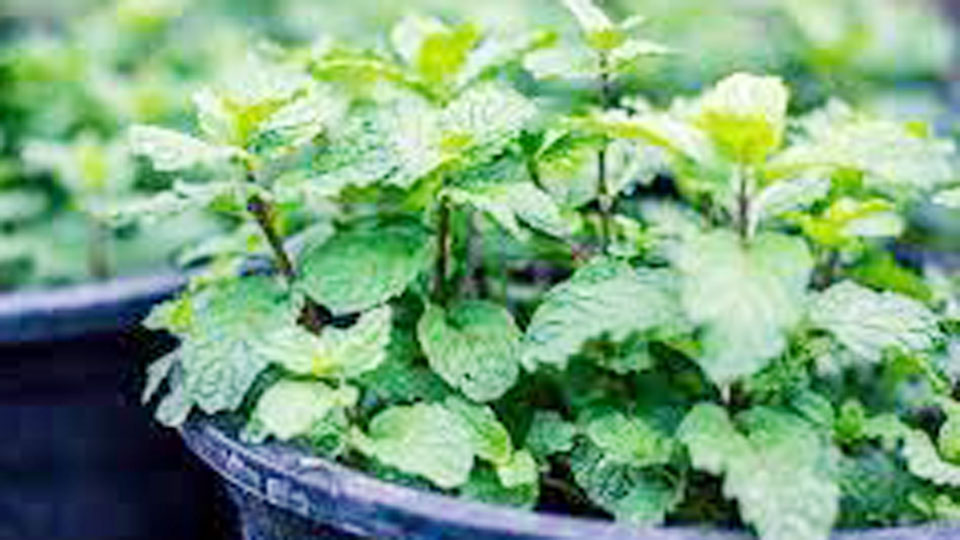Having a lush, thriving vegetable garden is one of the most rewarding things for a gardener. But keeping it safe from pests? That’s another story. If you’re like me, you’ve probably looked for ways to control bugs naturally without relying on harmful chemicals.

Image by earthsally
One of the easiest and most sustainable methods is using herbs. Yes, certain herbs are fantastic at repelling bugs and protecting your vegetable garden. Let me walk you through how these natural defenders work and how you can use them effectively.
Why Use Herbs to Repel Bugs in Your Garden?
I love the idea of working with nature instead of against it. Using herbs to repel bugs is not only eco-friendly but also enhances the biodiversity of your garden. These herbs release natural oils and scents that pests dislike, effectively keeping them away. Plus, most of these herbs are multi-purpose—you can use them in cooking or other DIY projects.
How Do Herbs Repel Bugs?
The secret lies in the natural chemical compounds found in herbs. For example, many herbs contain essential oils that act as natural pesticides. Bugs rely on their sense of smell to find food, and the strong aroma of certain herbs confuses or deters them. Some herbs even have insecticidal properties, which means they’ll kill or repel pests outright.
Best Herbs That Keep Bugs Away From Vegetable Gardens
Here are some of the best herbs you can plant to protect your vegetable garden naturally:
Basil
Basil is a superstar when it comes to repelling common garden pests like flies and mosquitoes. Its strong scent confuses bugs, making it hard for them to find your vegetables.
How to Use Basil:
- Plant basil near tomatoes, peppers, and lettuce for added protection.
- Make a basil spray by steeping fresh leaves in water and spraying it around your garden.
Mint
Mint is another powerful herb that pests hate. Its strong smell deters ants, aphids, and even mice.
How to Use Mint:
- Plant mint around the edges of your garden, as it can spread quickly.
- Use dried mint leaves as a natural mulch around your vegetable plants.
Lavender
Lavender’s calming scent is delightful for humans but unbearable for bugs like moths, fleas, and flies. It’s also great for attracting pollinators.
How to Use Lavender:
- Plant lavender in sunny areas around your vegetable garden.
- Harvest lavender flowers and use them in sachets to repel bugs indoors.
Rosemary
Rosemary is not only a flavorful cooking herb but also a natural bug deterrent. It repels cabbage moths, carrot flies, and even mosquitoes.
How to Use Rosemary:
- Plant rosemary near cabbage, broccoli, and carrots.
- Burn rosemary sprigs as a natural mosquito repellent during outdoor gatherings.
Thyme
Thyme is excellent at deterring whiteflies, cabbage worms, and other garden pests. Its earthy aroma masks the scent of your vegetables.
How to Use Thyme:
- Plant thyme near brassicas like kale, broccoli, and cauliflower.
- Make a thyme tea spray to spritz directly onto plants.
Marigolds
While technically not an herb, marigolds deserve a mention for their pest-repelling properties. They emit a scent that deters nematodes, aphids, and whiteflies.
How to Use Marigolds:
- Plant marigolds as a border around your vegetable garden.
- Mix marigold petals into your compost to deter soil pests.
Companion Planting with Herbs
Companion planting is a technique where you grow certain plants together to enhance their growth and protect each other from pests. Herbs are excellent companions for vegetables because they can either repel bugs or attract beneficial insects like bees and ladybugs.
Here’s a simple table to guide you on pairing herbs with vegetables:
| Herb | Best Companions | Pests Repelled |
|---|---|---|
| Basil | Tomatoes, Peppers, Lettuce | Flies, Mosquitoes |
| Mint | Cabbage, Carrots | Ants, Aphids |
| Lavender | Kale, Zucchini | Moths, Fleas, Flies |
| Rosemary | Broccoli, Carrots | Cabbage Moths, Mosquitoes |
| Thyme | Kale, Broccoli | Whiteflies, Cabbage Worms |
| Marigolds | Tomatoes, Beans | Aphids, Whiteflies |
How to Care for Herbs in Your Vegetable Garden
Keeping your herbs healthy is key to their pest-repelling success. Here are a few tips:
- Sunlight: Most herbs need at least 6-8 hours of sunlight daily.
- Watering: Herbs prefer well-drained soil and moderate watering.
- Pruning: Regular pruning keeps herbs bushy and encourages the release of their natural oils.
- Mulching: Add a layer of organic mulch around herbs to retain moisture and deter weeds.
Additional Tips for Using Herbs to Keep Bugs Away
Use Herb Oils and Extracts: If you don’t want to plant herbs, you can use their essential oils. Dilute a few drops in water and spray it around your garden.
Dry Herbs for Future Use: Harvest and dry herbs to create sachets or natural bug sprays.
Rotate Crops and Herbs: Changing the location of your herbs and vegetables each season can prevent pests from becoming resistant.
Attract Beneficial Insects: Herbs like dill and fennel attract ladybugs and lacewings, which prey on harmful bugs.
Natural Herb Sprays to Repel Bugs
Making a natural bug spray from herbs is simple. Here’s a quick recipe I’ve used successfully:
Ingredients:
- 1 cup fresh herbs (basil, mint, or thyme)
- 4 cups water
- 1 tablespoon dish soap
Instructions:
- Boil the herbs in water for 10 minutes.
- Let the mixture cool and strain it.
- Add dish soap and mix well.
- Pour into a spray bottle and apply to your plants.
Benefits of Growing Herbs in Your Garden
Beyond pest control, there are so many reasons to grow herbs in your vegetable garden:
- Cost Savings: Fresh herbs are expensive to buy, and growing them is much cheaper.
- Culinary Uses: Herbs add incredible flavor to your dishes.
- Aesthetic Appeal: Many herbs, like lavender and rosemary, are beautiful and add character to your garden.
- Health Benefits: Herbs have medicinal properties and can support your overall well-being.
Conclusion
Using herbs to keep bugs away from your vegetable garden is an eco-friendly, effective, and rewarding solution. Not only do they protect your plants, but they also enhance the beauty and functionality of your garden. From basil and mint to lavender and rosemary, there’s a wide variety of herbs that can help you create a thriving, pest-free garden.
I’ve found that working with herbs is one of the simplest ways to keep bugs at bay while enjoying the added benefits of fresh, flavorful ingredients for my kitchen. Give it a try—your garden (and your taste buds) will thank you!
FAQs
Can I use dried herbs to repel bugs?
Yes, dried herbs can be effective. Sprinkle them around your plants or use them in DIY sachets and sprays.
Do I need to replace the herbs regularly?
Fresh herbs release more oils, so replace or prune them often to keep their pest-repelling properties strong.
Are there any herbs that attract bugs?
Some herbs, like dill and fennel, attract beneficial insects such as ladybugs and pollinators, which help your garden thrive.
Can I plant all these herbs together in one area?
While you can plant many herbs together, ensure they have similar sunlight and watering needs to thrive.
Will using herbs completely eliminate bugs?
Herbs are a great deterrent, but they may not eliminate all pests. They work best as part of an integrated pest management strategy.

I’m Marissa Lynn, the proud author behind GardeningProperty.com! With a deep-rooted passion for all things green and growing, I’ve dedicated years to mastering the art and science of gardening.
From nurturing vibrant flowerbeds to cultivating thriving vegetable gardens, I love sharing practical tips, creative ideas, and proven techniques to help others create their dream outdoor spaces.